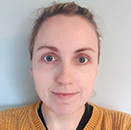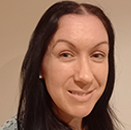-
Courses

Courses
Choosing a course is one of the most important decisions you'll ever make! View our courses and see what our students and lecturers have to say about the courses you are interested in at the links below.
-
University Life

University Life
Each year more than 4,000 choose University of Galway as their University of choice. Find out what life at University of Galway is all about here.
-
About University of Galway

About University of Galway
Since 1845, University of Galway has been sharing the highest quality teaching and research with Ireland and the world. Find out what makes our University so special – from our distinguished history to the latest news and campus developments.
-
Colleges & Schools

Colleges & Schools
University of Galway has earned international recognition as a research-led university with a commitment to top quality teaching across a range of key areas of expertise.
-
Research & Innovation

Research & Innovation
University of Galway’s vibrant research community take on some of the most pressing challenges of our times.
-
Business & Industry

Guiding Breakthrough Research at University of Galway
We explore and facilitate commercial opportunities for the research community at University of Galway, as well as facilitating industry partnership.
-
Alumni & Friends

Alumni & Friends
There are 128,000 University of Galway alumni worldwide. Stay connected to your alumni community! Join our social networks and update your details online.
-
Community Engagement

Community Engagement
At University of Galway, we believe that the best learning takes place when you apply what you learn in a real world context. That's why many of our courses include work placements or community projects.
Nursing: Acute Medicine (MHSc/PDip)
Course Overview
This programme aims to meet the educational needs of nurses working in an acute medical unit (AMU, AMAU, MAU), short stay unit or equivalent which cares for patients with acute medical conditions.
Students are required to undertake their clinical practice in an approved clinical practice setting within Ireland, normally within the students' own work setting. Students may also be required to undertake additional placement(s) in order to meet the programme’s learning outcomes.
All students will register on the full-time one-year Postgraduate Diploma. On completion of both theoretical and clinical modules for this course, students will graduate with a Postgraduate Diploma or (if they have achieved the minimum 60% average mark across these modules) they may apply to transfer to the second year of the MSc programme.
A blended learning approach is adopted in the delivery of this programme. Students are required to attend face to face workshops for a total of 12 days across the programme. Students are required to complete a minimum of 500 hours (reduced from previously-published 1,000 hours, on NMBI advice)
SPECIAL FEATURES
The course has a clinical focus, offering opportunities to develop specialist skills. The programme is offered through a blended learning format—a combination of online and face-to-face learning and teaching. Blended learning is an innovative and flexible approach to learning, making it possible to combine working full-time with studying. This course has category 2 approval by The Nursing and Midwifery Board of Ireland (NMBI).
Scholarships and funding available
Find out about our Postgraduate Scholarships here.
Click here for HSE funding information.
Applications and Selections
Applications are made online via the University of Galway Postgraduate Applications System.
Please note all applicants register for the 1-year postgraduate diploma, with the opportunity to transfer to the second year of the MSc programme at the end of the first year if they meet the relevant eligibility criteria.
Who Teaches this Course
See the full staff list here.
Requirements and Assessment
Modules are assessed using a combination of coursework and teaching assessments.
Key Facts
Entry Requirements
- An honours bachelor’s degree at NFQ Level 8 in nursing or a comparable qualification. Applicants who do not hold an honours degree or Higher Diploma (Level 8) must demonstrate that they have successfully completed (in the previous two years) a module at Level 9. Please consult the professional credit awards at Level 9;
- Currently employed as a nurse in an Acute Medical Unit (AMUs), Acute Medical Assessment Unit (AMAU), or Medical Assessment Unit (MAU), Short Stay Unit (SSU), or an equivalent clinical setting that has a remit for caring for patients in the acute stage of their medical illness. Applicants must have a minimum of six months’ experience in this setting over the past two years;
- Written evidence of support for the applicant from their Director of Nursing and clinical unit manager;
- Minimum academic and/or professional qualifications and standards required, together with any equivalence that may apply;
- Students must work in the clinical area for the duration of the programme. Clinical requirements for completion of the programme are to pass two clinical competencies and are required to complete a minimum of 500 hours (reduced from previously-published 1,000 hours, on NMBI advice) in an acute medical unit or equivalent setting as deemed by the programme director.
Additional Requirements
Recognition of Prior Learning (RPL)
Duration
Postgraduate Diploma: 1 year full-time
Masters: 2 years full-time (if eligible for second year following Postgraduate Diploma)
Next start date
September 2026
A Level Grades ()
Average intake
10 (minimum)
QQI/FET FETAC Entry Routes
Closing Date
30 June 2025
NFQ level
Mode of study
ECTS weighting
90
Award
CAO
Course code
MHSC-AMED
Course Outline
Students will complete three core and three specialist modules in the first year (60 ECTS). Eligible students will then complete a research dissertation (30 ECTS) in the second year.
Why Choose This Course?
Career Opportunities
This course is particularly significant as the 2010 Report of the National Acute Medicine Programme (AMP) suggests a new approach to education and training with the development of acute medicine as a specialty for physicians, and the nursing and therapy professions. It further suggests that these nurses must consolidate and expand their knowledge and skills to meet the need for early detailed assessment and development of initial treatment plans. (HSE, 2010). In the future, there may be a demand for clinical nurse specialists and advanced nurse practitioners working in acute medicine, and graduates of this programme will be ideally placed to apply for these types of positions.
Who’s Suited to This Course
Learning Outcomes
Transferable Skills Employers Value
Work Placement
Study Abroad
Related Student Organisations
Course Fees
Fees: EU
Fees: Tuition
Fees: Student levy
Fees: Non EU
For 2026/27 entrants, where the course duration is greater than 1 year, there is an inflationary increase approved of 1.8% per annum for continuing years fees.
Postgraduate students in receipt of a SUSI grant – please note an F4 grant is where SUSI will pay €4,000 towards your tuition (2026/27). You will be liable for the remainder of the total fee. A P1 grant is where SUSI will pay tuition up to a maximum of €6,270. SUSI will not cover the student levy of €140.
Note to non-EU students: learn about the 24-month Stayback Visa here.
Find out More

Marie Lettis | Graduate
The acute medicine programme was an excellent course. All material covered was relevant and easily related to practise. The module leaders were extremely helpful and provided guidance all the way. All course work was scheduled in a clear and easy to manage format. The facilitation of group communication also allowed for additional knowledge sharing. Overall a very worthwhile and enjoyable course.

Sinead Carragher | Graduate
I really enjoyed completing the Masters programme in acute medicine. The first year (postgrad dip) was very practical, we learned the basics of research, service improvement but also learned loads about common acute medical conditions and advanced assessment skills. There was a combination of assessments, exams and course work and we had great access to online resources to help us complete these. The lecturers were friendly and enthusiastic about the topics they were teaching. For the second year (Masters), everything was online due to Covid-19 restrictions. Lecturers were again easily accessible to us through online teaching and interactive blogs. I felt very supported and able to plan and manage my own deadlines to complete this course. This course has enabled me to have more knowledge in the clinical area and a greater appreciation for the value of nursing research. It is great to be able to add this to my CV for any further job opportunities that may arise for me.

Catherine Burke | Graduate, PDip Acute Medicine 2019–2020
The acute medicine programme enhanced my theoretical knowledge and provided me with essential practical skills that I now use in my everyday clinical practice. The lectures and workshops have a supportive atmosphere with great interaction between students and tutors. I enjoyed my time in the postgraduate year so much, I continued on to year 2 to complete my masters. Considering I had not been in the college environment since 2005, returning to study felt like a very daunting prospect but I am happy to say my fears were completely unfounded.
















